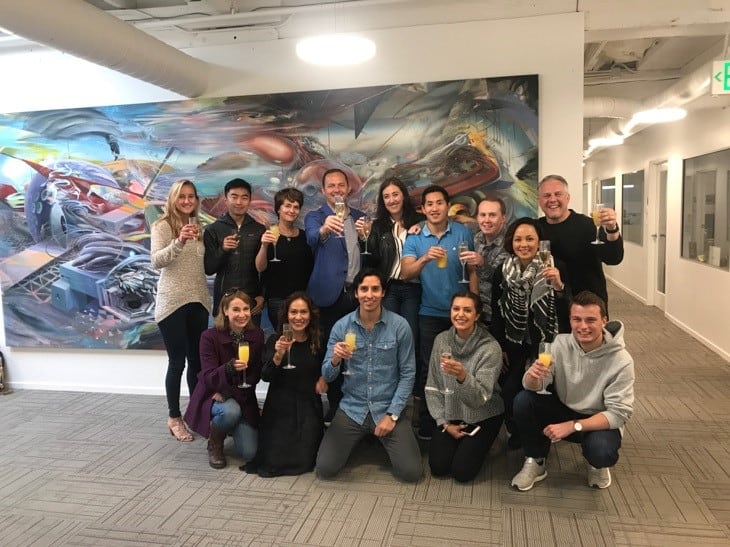IGEL Blog

Ada Lovelace Day: Honoring Women in STEM Fields
Ada Lovelace Day: Honoring Women in STEM Fields
Every year on the second Tuesday of October, Ada Lovelace Day (ALD) is celebrated to recognize the contributions of women in the fields of Science, Technology, Engineering, and Mathematics (STEM). This day pays tribute to Ada Lovelace, one of the world’s first programmers and a visionary who lived in the 19th century. Her legacy lives on today through ALD, a global movement that honors and inspires women in STEM careers. In this blog article, we take a closer look at the significance of Ada Lovelace Day and celebrate just a few of the outstanding women who have made a lasting impact on the world of science and technology.
Ada Lovelace: A Visionary in the 19th Century
Ada Lovelace was born in London, England, in 1815, and she was the daughter of the famous poet Lord Byron. Her mother, Anne Isabella Milbanke, encouraged Ada’s early interest in mathematics and natural sciences, laying the foundation for her future work.
Her breakthrough came in 1843 when she collaborated with Charles Babbage on his Analytical Engine, one of the earliest concepts of a programmable computing machine. Ada Lovelace annotated Babbage’s work, including the famous “A-Text,” considered the world’s first computer program. In this text, she described how the Analytical Engine could be used not only for numerical calculations but also for creating music and graphics—an astonishing vision that extended far beyond her time.
Ada Lovelace Day: Celebrating Women in STEM
Ada Lovelace Day was launched in 2009 by British scientist Suw Charman-Anderson. This day serves to highlight the achievements of women in STEM fields and raise awareness of the existing gender disparities in these industries. ALD provides an opportunity to celebrate women who have excelled in their respective fields and, at the same time, encourage young girls and women to pursue careers in STEM.
Outstanding Women in STEM
Marie Curie – The Polish-French physicist and chemist Marie Curie is one of the most renowned women in the history of science. She received the Nobel Prize in Physics in 1903 and the Nobel Prize in Chemistry in 1911 for her groundbreaking work on radioactivity.
Rosalind Franklin – British chemist Rosalind Franklin made significant contributions to the understanding of DNA structure. Although often overlooked, her work was crucial to our understanding of genetics.
Hedy Lamarr – Yes, the actress Hedy Lamarr was also a talented engineer. During World War II, she, along with composer George Antheil, developed frequency hopping technology, laying the foundation for modern wireless communication systems.
Katherine Johnson – As an African-American mathematician, Katherine Johnson played a key role in U.S. space exploration history. She calculated trajectories for the first manned spaceflights, including the historic Apollo 11 moon landing.
Grace Hopper – Known as “the grandmother of COBOL programming,” American computer scientist Grace Hopper revolutionized software development. Her work led to the development of COBOL, one of the first programming languages.
The Significance of Diversity in STEM
Ada Lovelace Day is not just a day of celebration but also a reminder of the importance of diversity in STEM fields. Women and other underrepresented groups bring diverse perspectives and ideas to science and technology. By recognizing these talents and removing barriers, we can find solutions to the complex challenges of our world more efficiently.
Ada Lovelace Day at IGEL Technology
Ada Lovelace Day is important to IGEL because it provides an annual reminder that we still have work to do in terms of achieving gender equality and diversity in both the workplace and society as a whole. Here at IGEL, we have established the IGEL4Women in Tech initiative, which plays a crucial role in our efforts to raise awareness of the challenges women face, especially in tech-based industries like ours. This group consists of dedicated employees (women and men) who actively support and promote women in STEM careers, through workshops, presentations, and social media activities throughout the year to highlight the unique challenges that women in our industry face. These events not only provide a platform for sharing experiences but also foster discussions on strategies for promoting gender equality. Another important step we take at IGEL to promote diversity in our company is our presence at job fairs specifically targeting women. We recognize the importance of actively reaching out to female talent and hiring them. We firmly believe that diversity in our teams is key to success and contributes to the development of innovative solutions.
Ada Lovelace Day reminds us that together, we can work towards a fairer and more diverse world. Ada Lovelace would undoubtedly be proud of how far we have come in recent years and how far we can still go.


